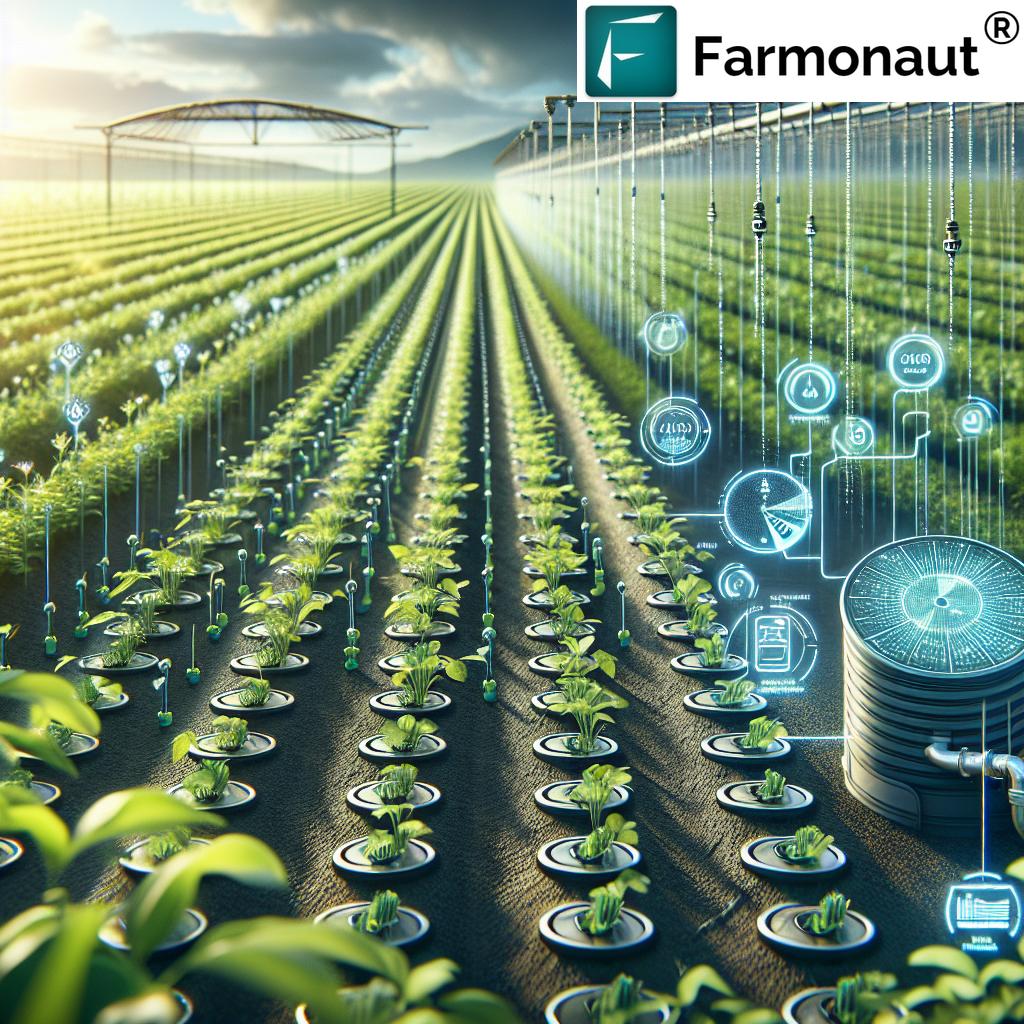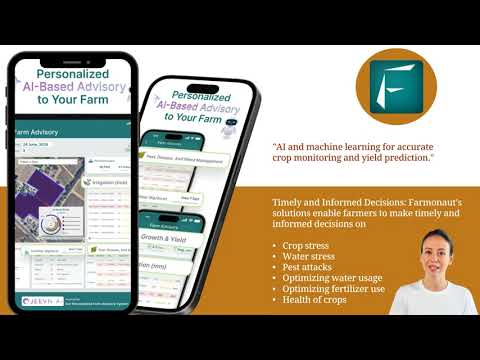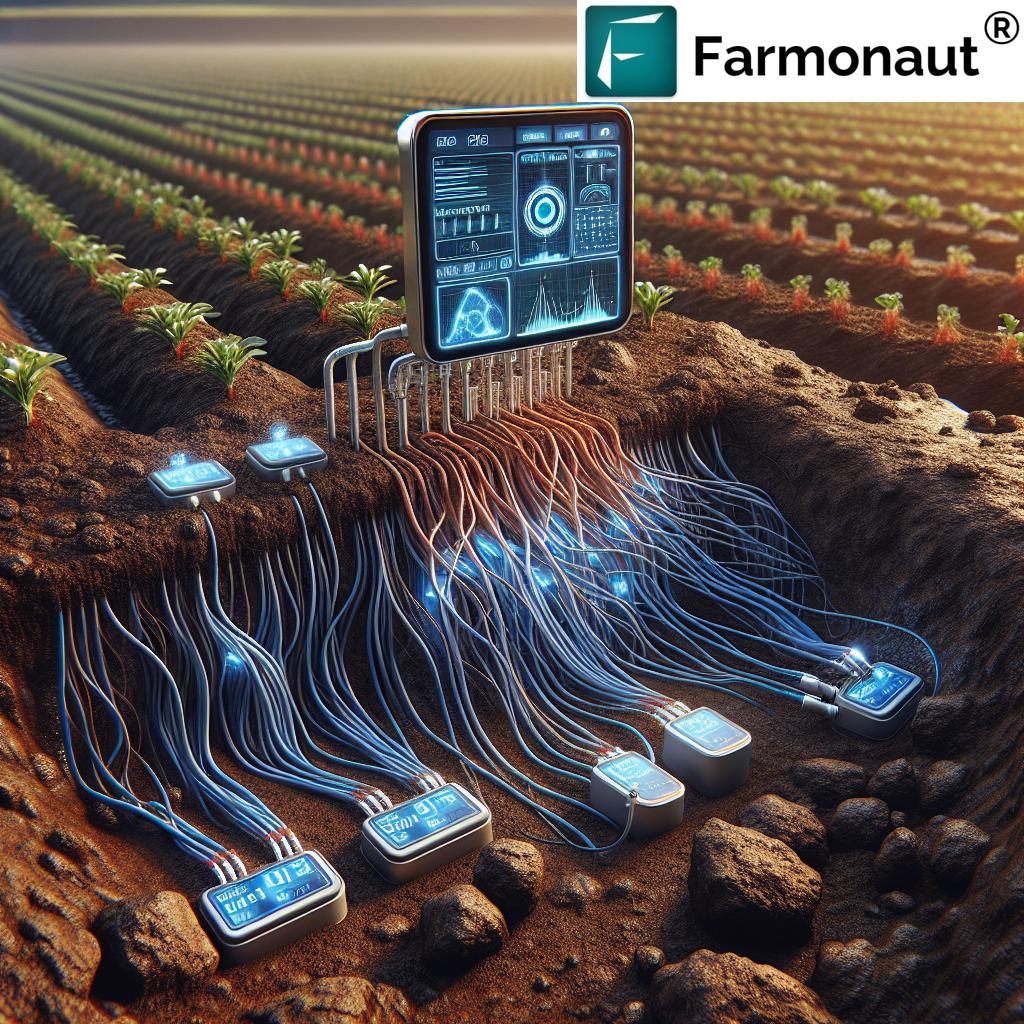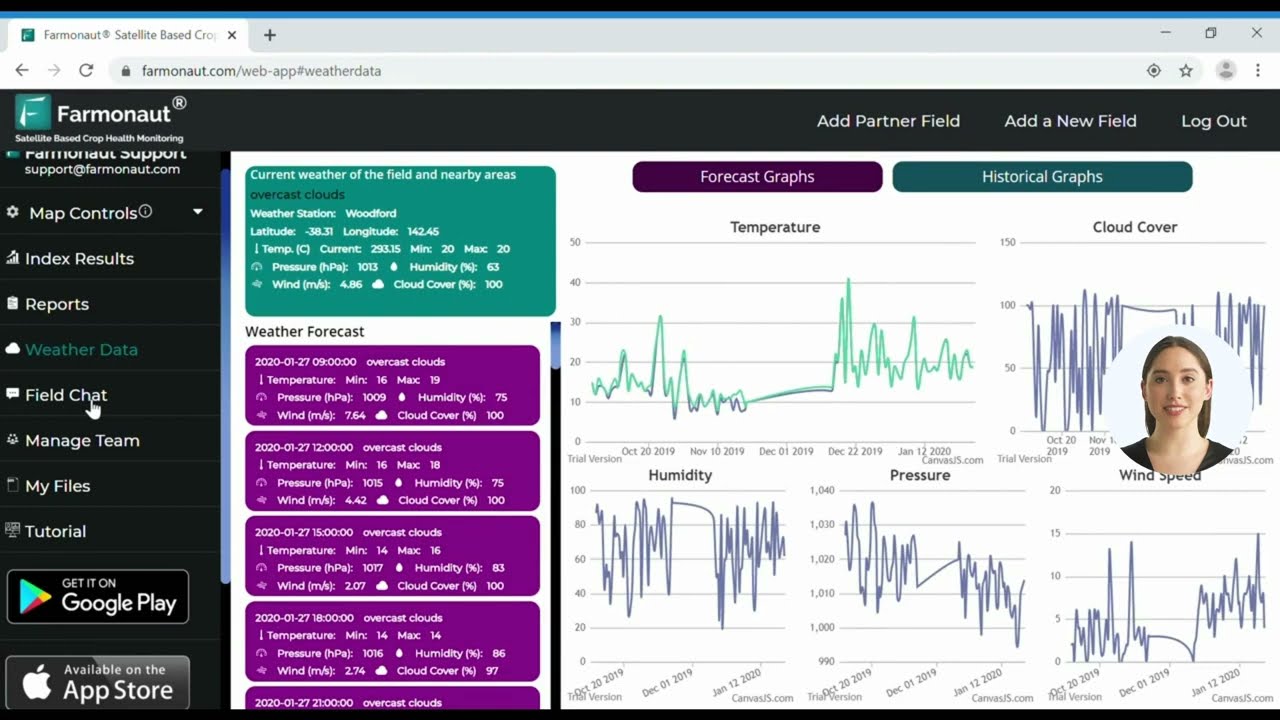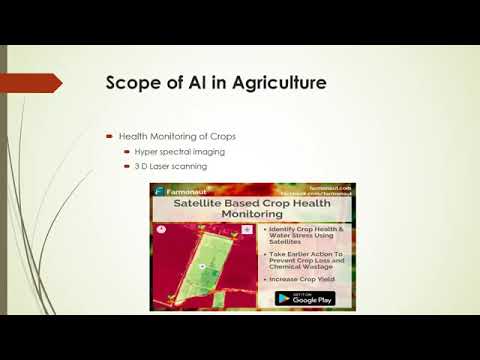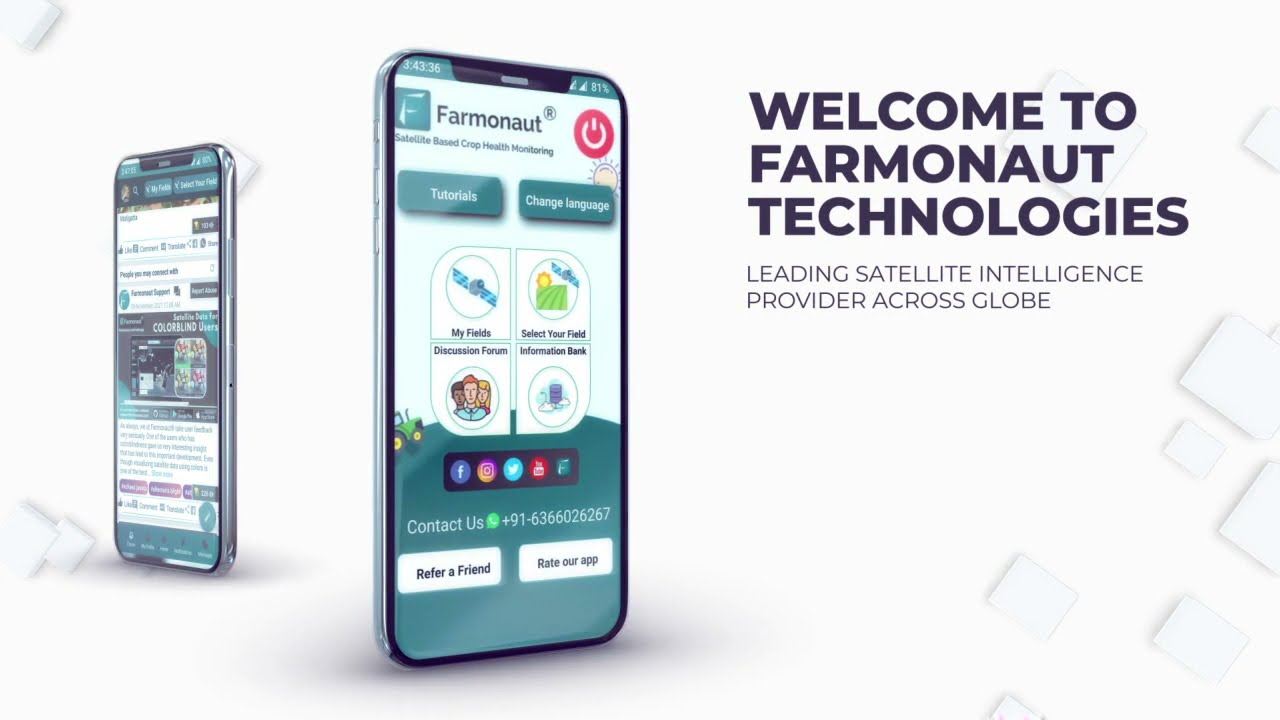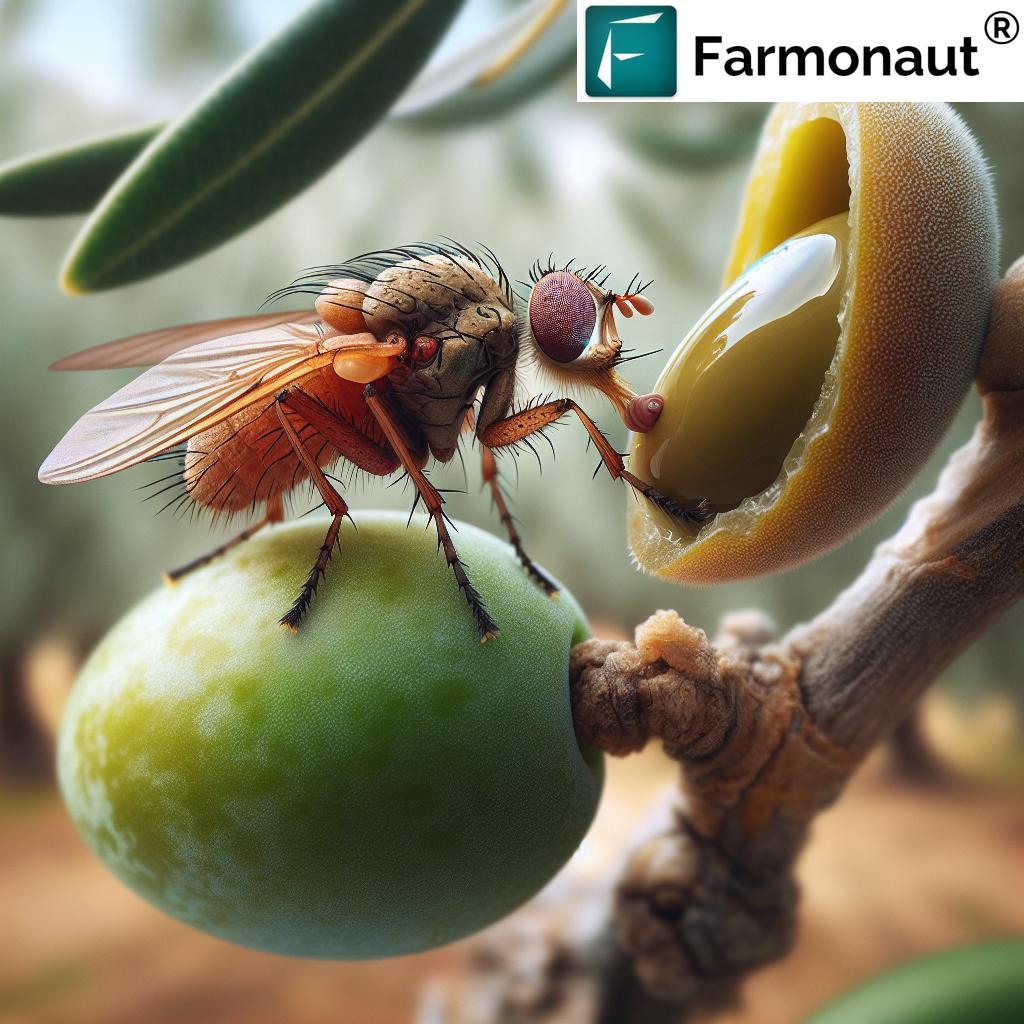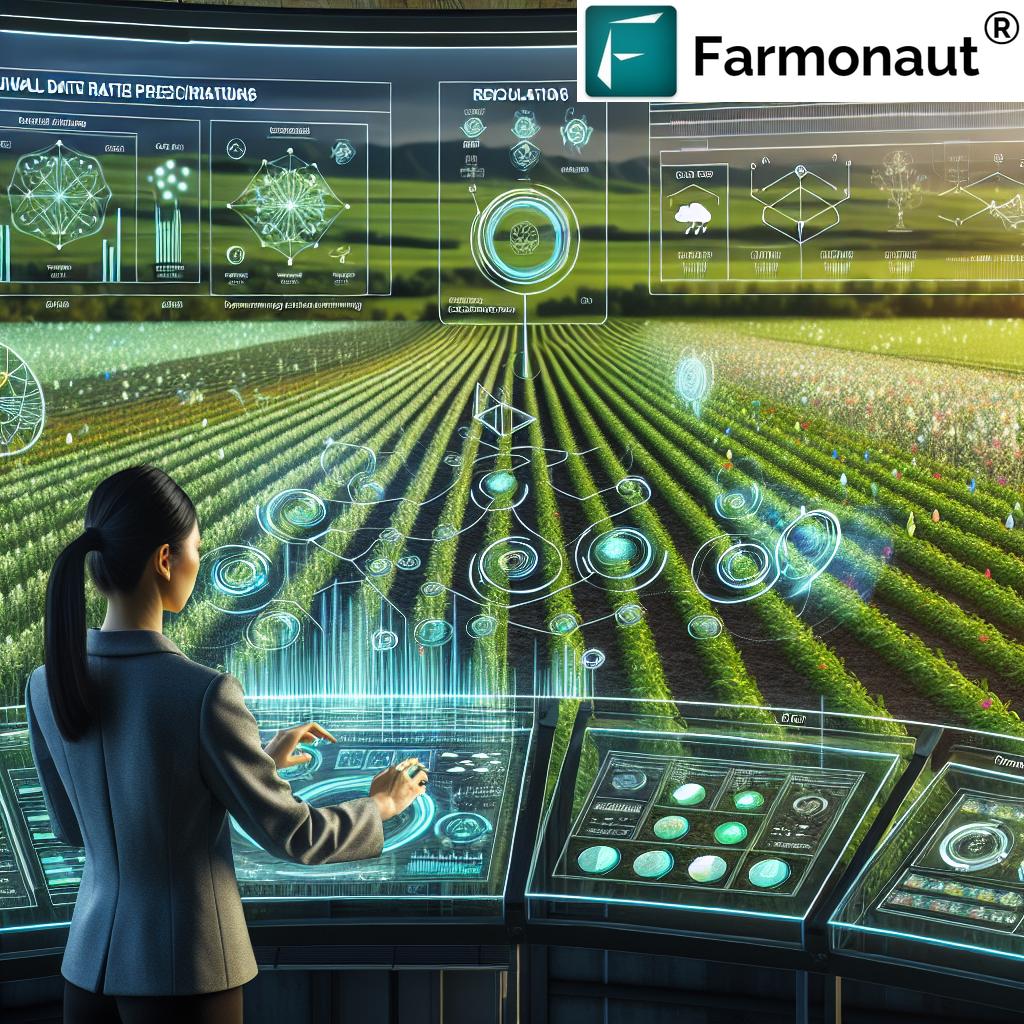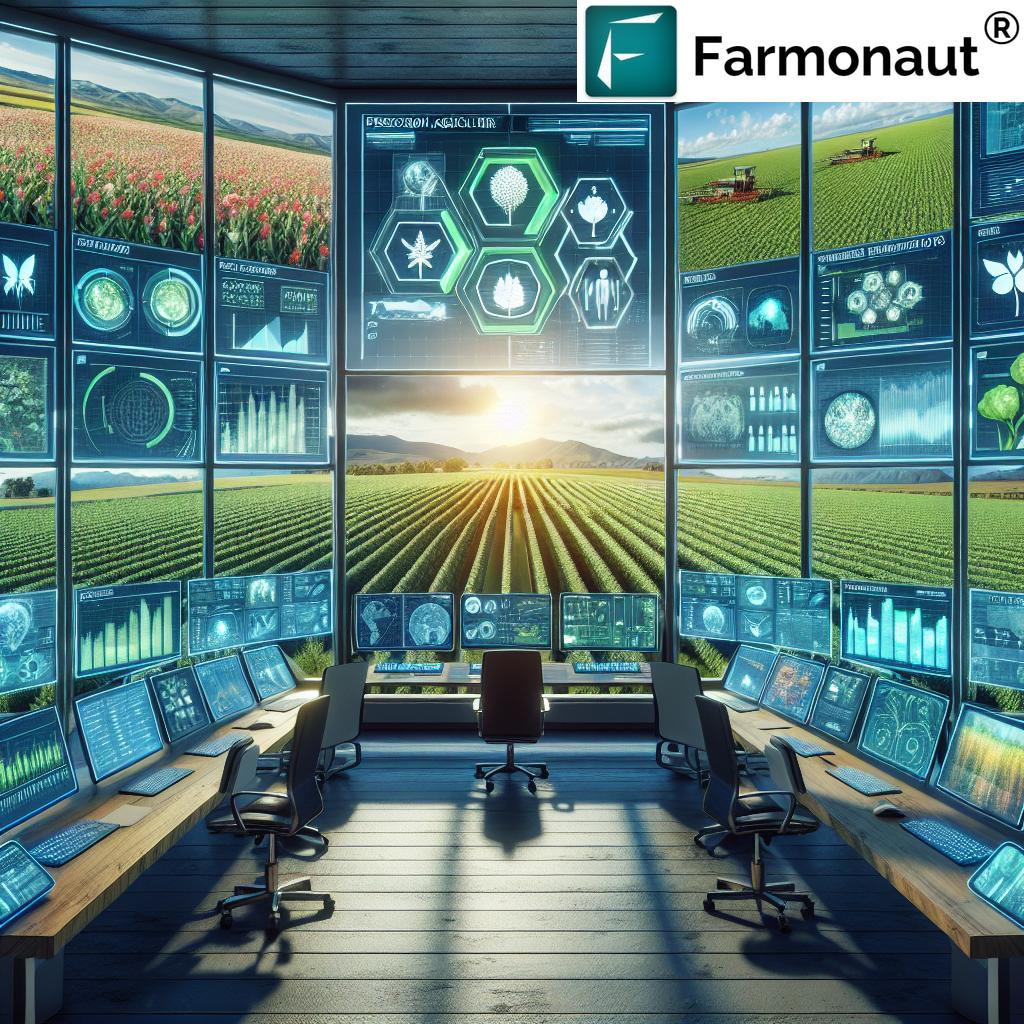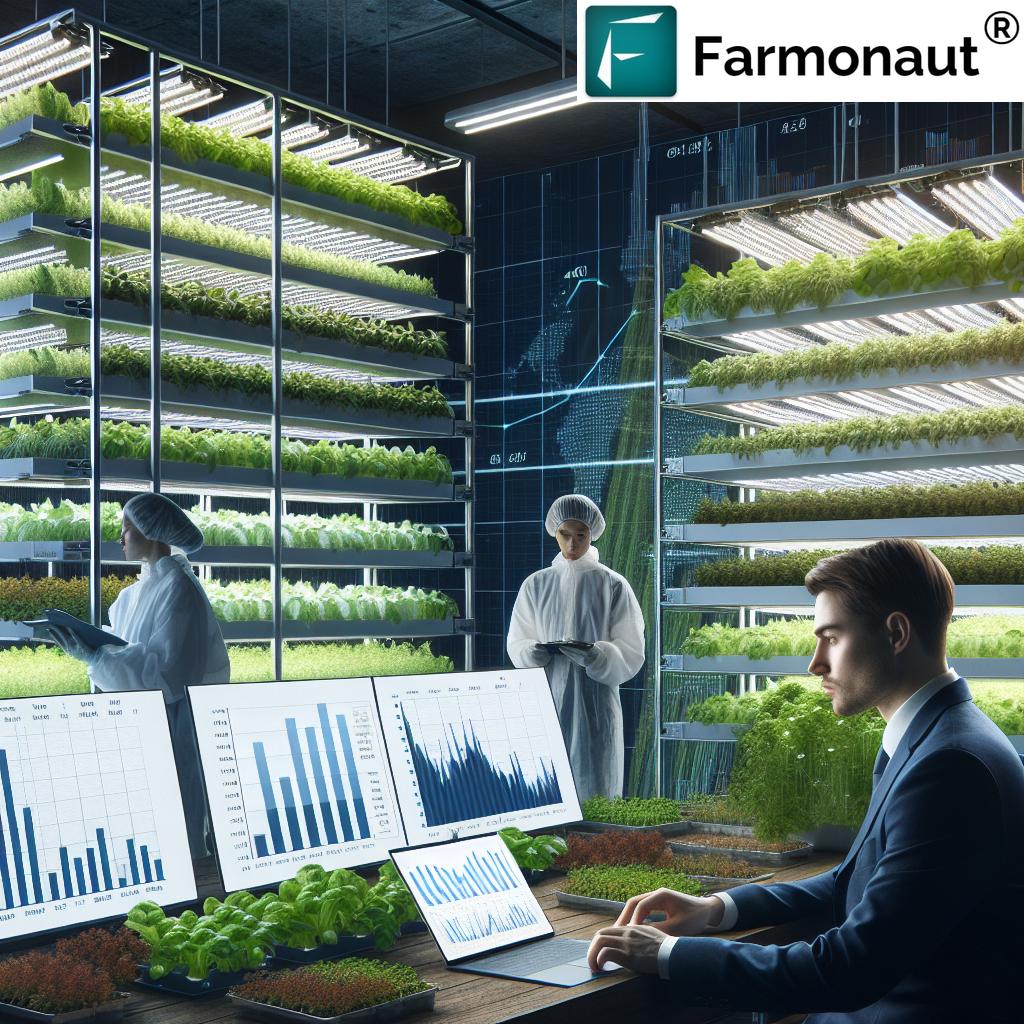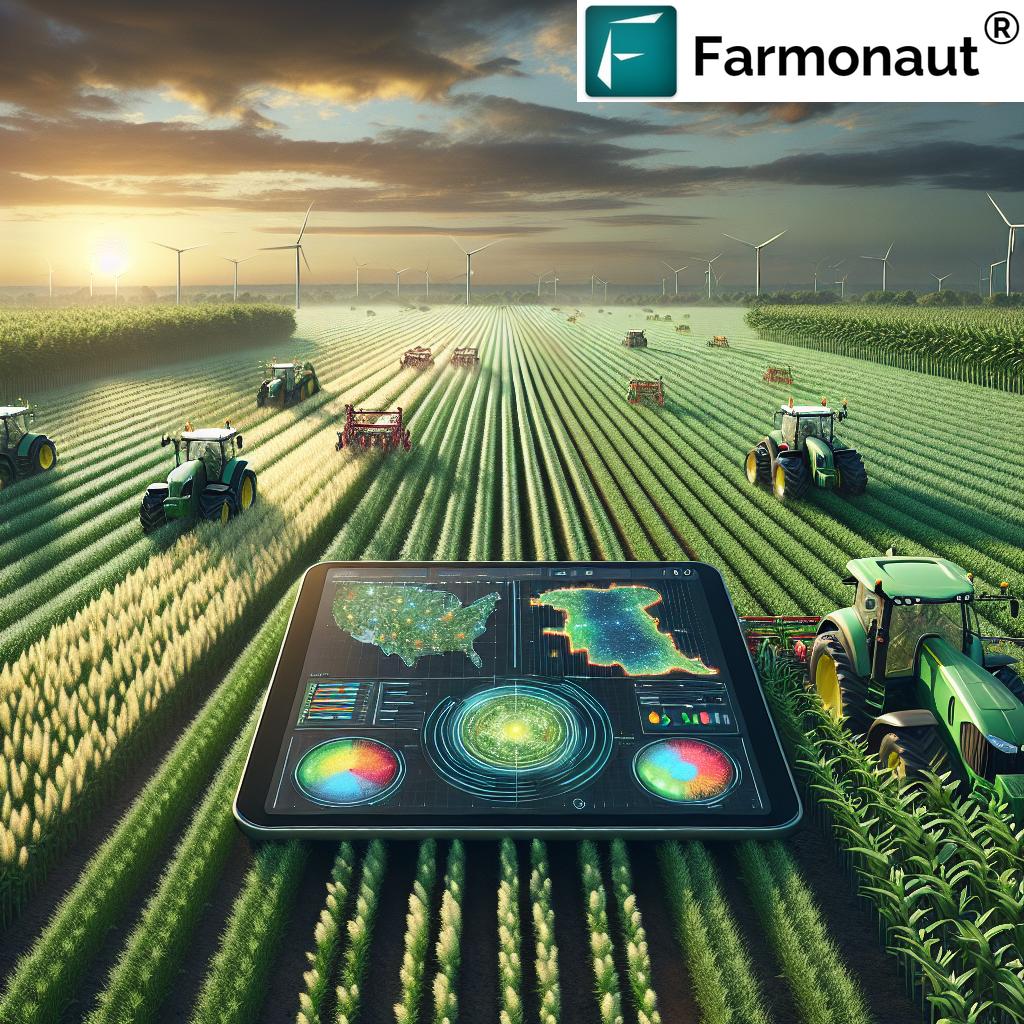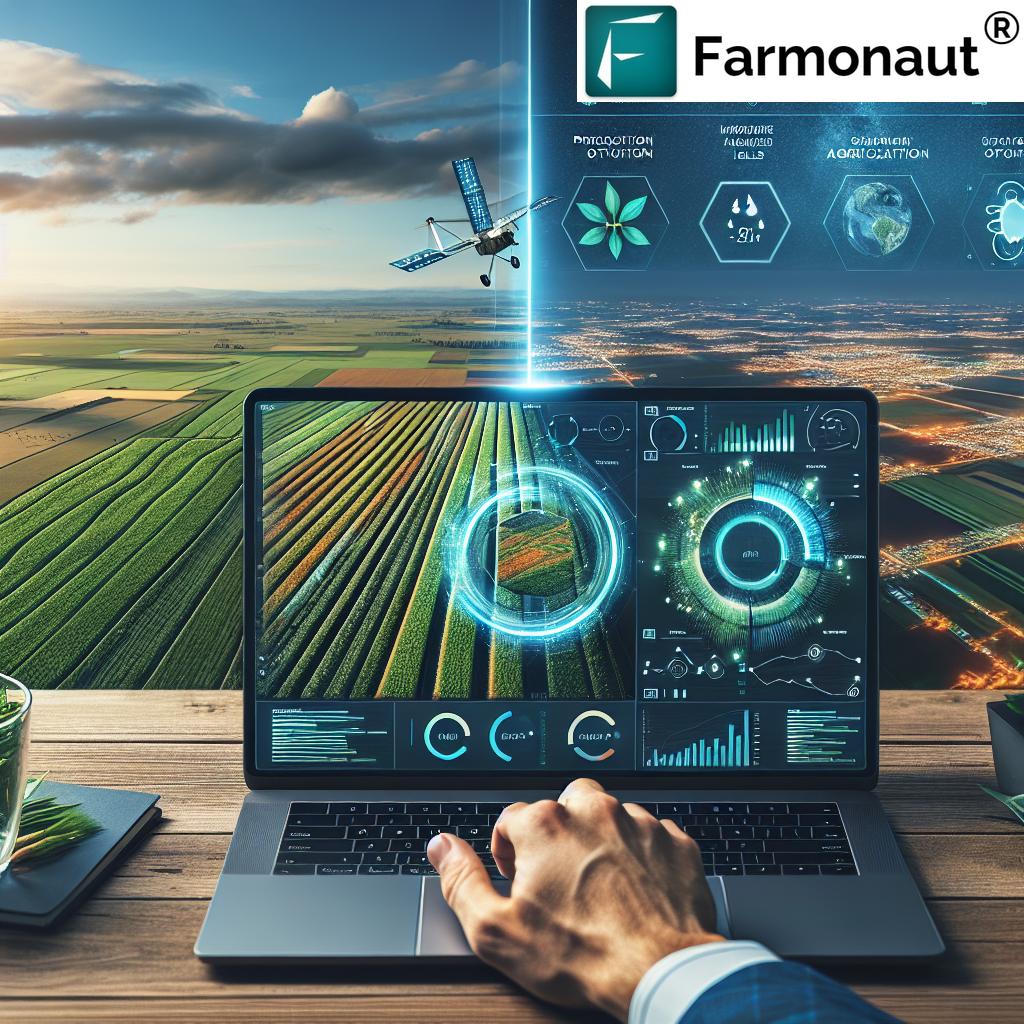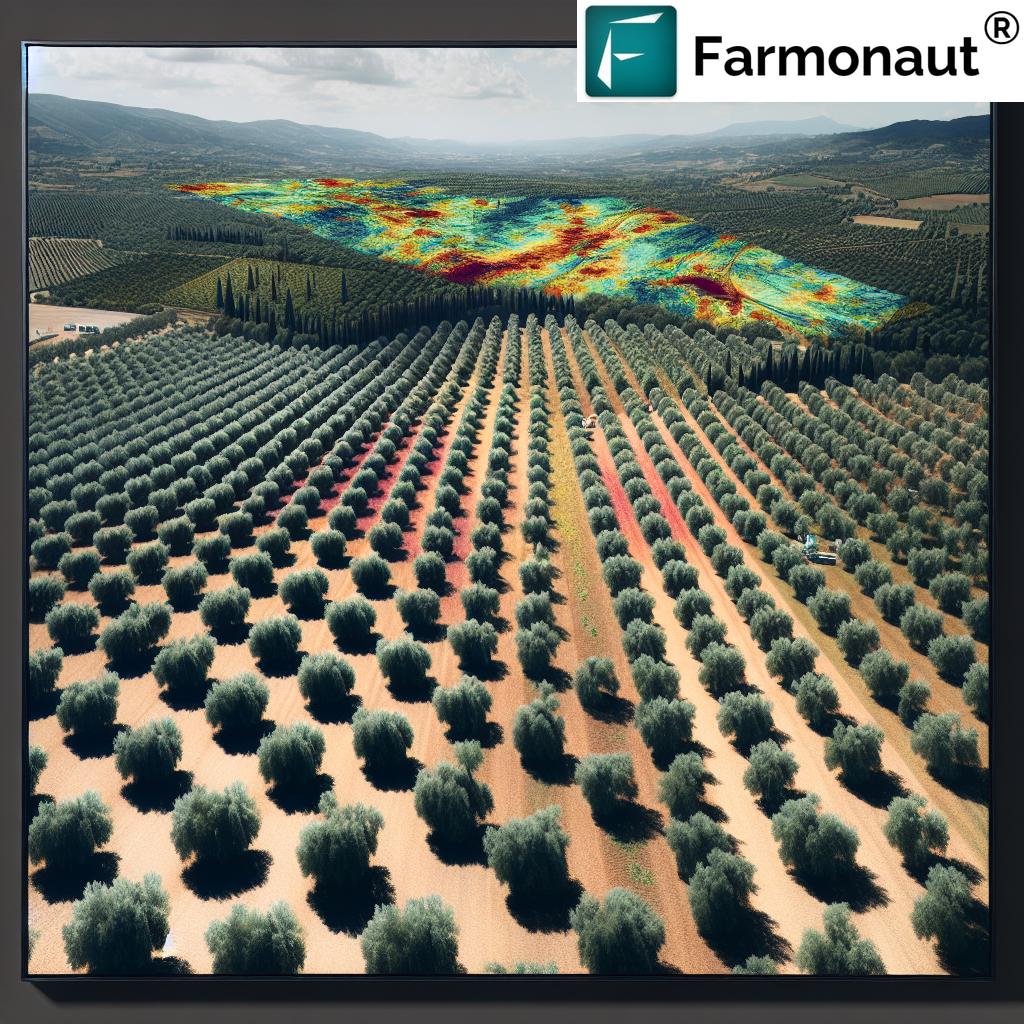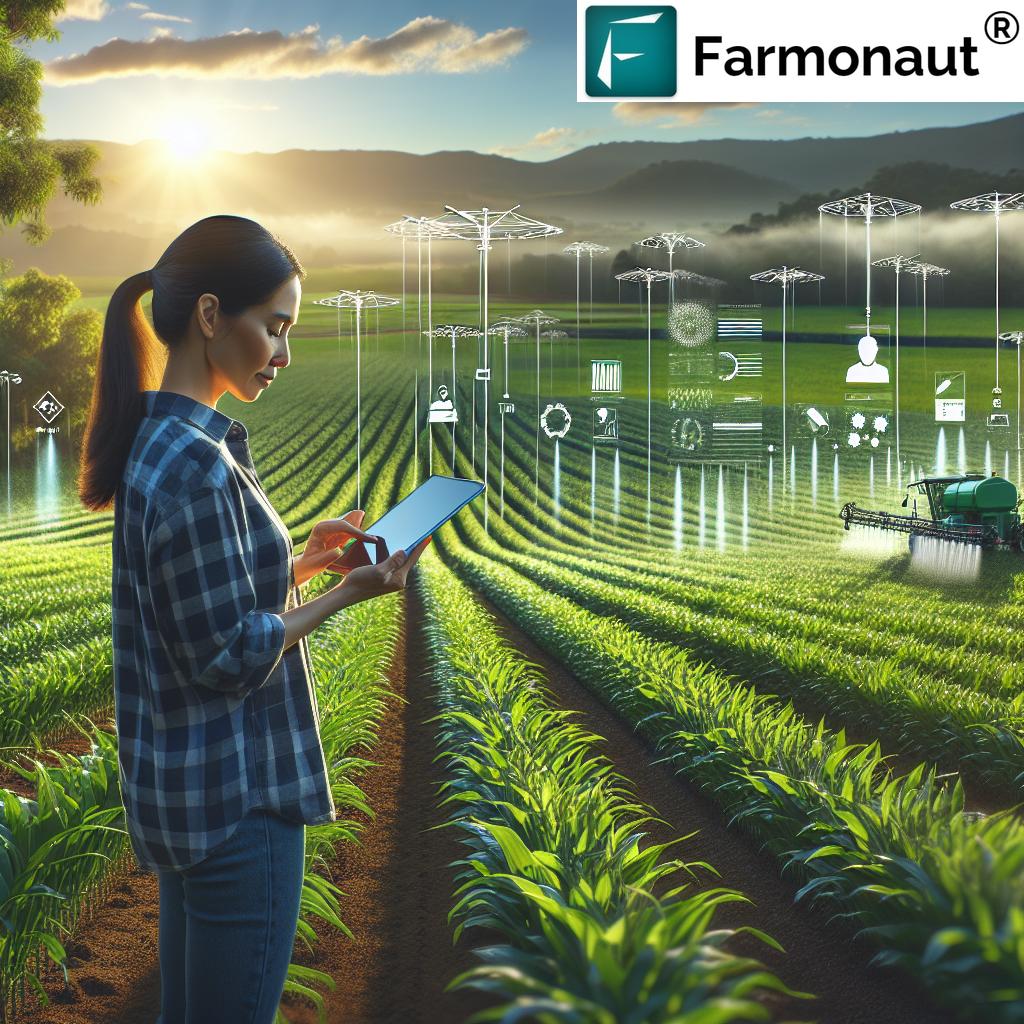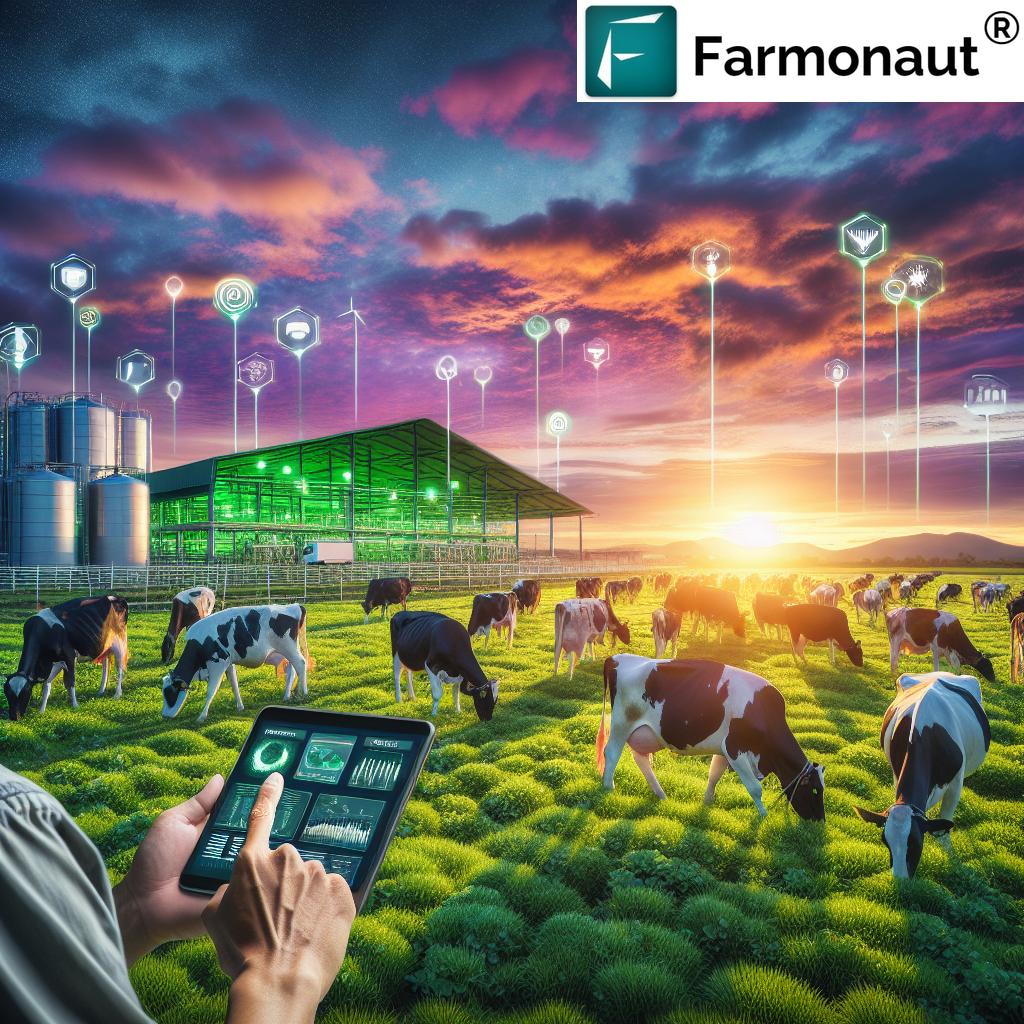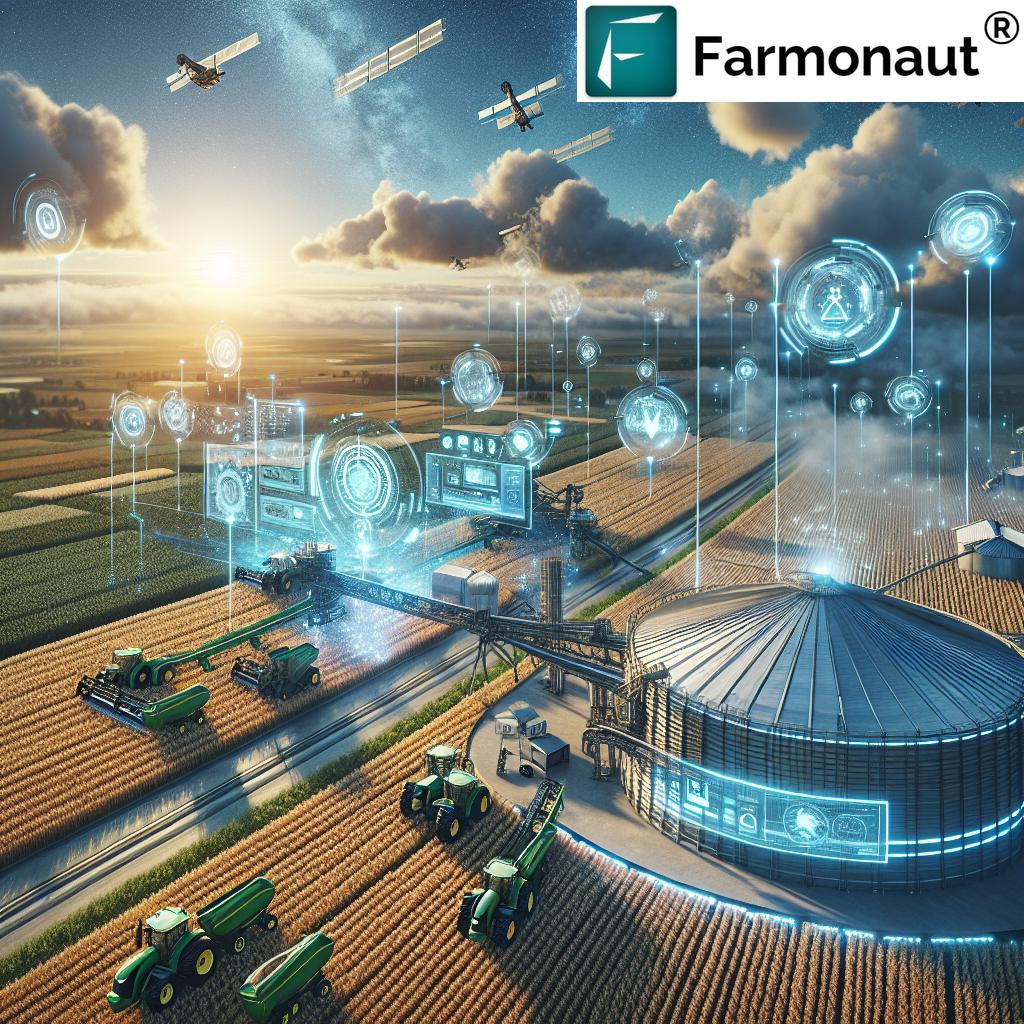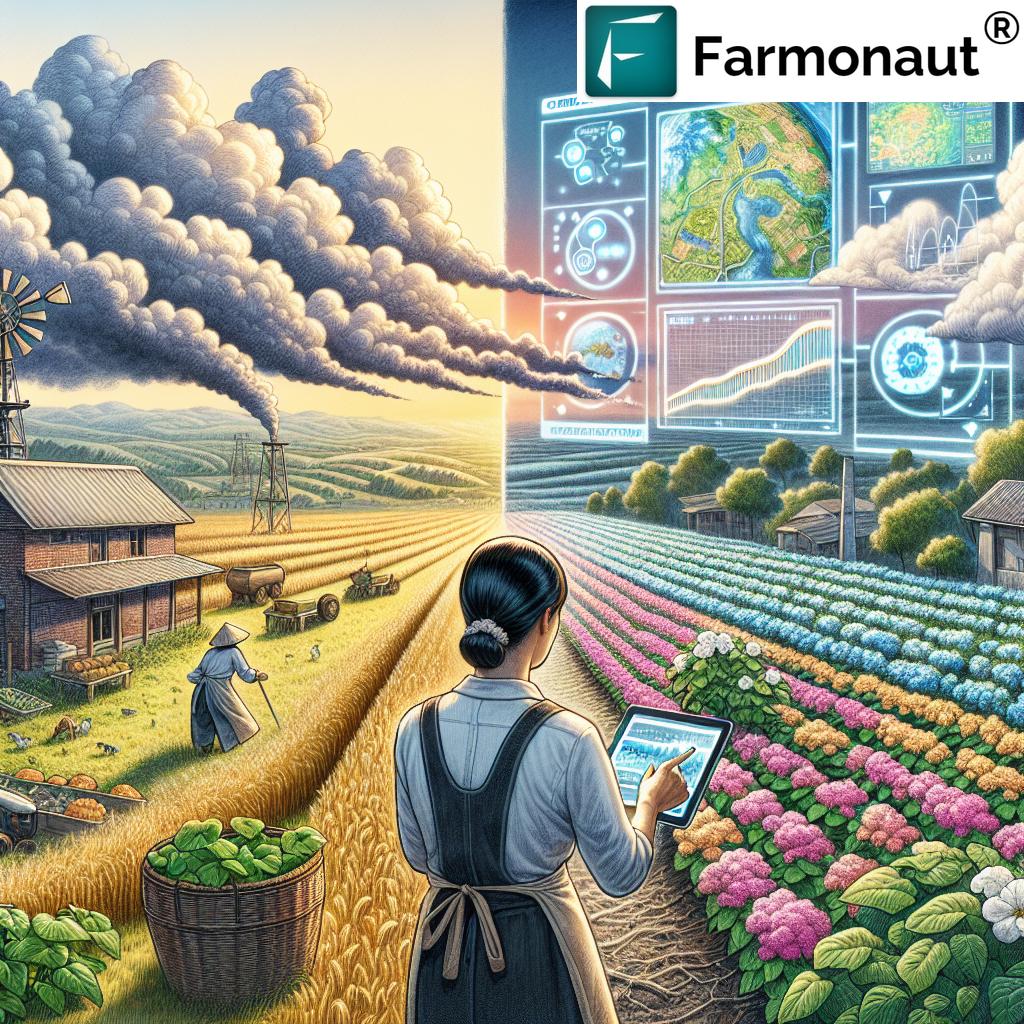Table of Contents
- Introduction: The Need for Smart Irrigation Technology
- Components of Smart Irrigation Systems
- 7 Powerful Ways Smart Irrigation Technology Boosts Yields
- Comparison Table: Smart Irrigation Technologies
- Farmonaut: Revolutionizing Precision Agriculture
- Benefits of Smart Irrigation Technology
- Challenges & Considerations for Adoption
- Future Outlook: Trends & Innovations
- FAQs on Smart Irrigation Technology
- Conclusion: Embracing Smart Irrigation for a Sustainable Future
Smart Irrigation Technology: 7 Powerful Ways to Boost Yields
Embracing smart irrigation technology marks a pivotal shift in agricultural water management. As populations grow and climate change impacts our resources, efficient water usage, improved crop yields, and sustainability become critical pillars in modern agriculture. Innovative systems such as soil moisture sensors, weather-based irrigation controllers, and data-driven automation tools are equipping farmers to achieve more with less—optimizing not just water, but the very future of food production.
In this comprehensive guide, we’ll explore what makes smart irrigation technology so transformative, break down its components, reveal seven powerful strategies to maximize output, and detail how modern solutions like Farmonaut are revolutionizing precision farming worldwide.
Smart irrigation systems use a network of sensors, weather data, and automation technologies to deliver the precise amounts of water needed by plants, directly to their roots. By leveraging data-driven analysis, farmers can minimize waste, optimize yields, and contribute to long-term sustainable farming practices.
Components of Smart Irrigation Systems
Modern smart irrigation systems are sophisticated solutions integrating multiple innovative technologies. Let’s break down the core components that work together to deliver efficient irrigation solutions for agricultural water management:
-
Soil Moisture Sensors
These devices measure the volumetric water content in soil, sending real-time data about moisture levels. By providing this vital information, sensors empower us to make informed decisions, ensuring crops get just the right amount of hydration while preventing wasteful overwatering or damaging underwatering. -
Weather-Based Controllers
Utilizing local weather data, these controllers adjust irrigation schedules in response to factors like temperature, humidity, and precipitation forecasts. They guarantee that water is applied only when—and how much—it’s truly needed. -
Drip Irrigation Systems
Drip irrigation technology delivers water directly to plant roots through a network of pipes, valves, and emitters. This minimizes evaporation and runoff, resulting in higher water efficiency. -
Remote Monitoring and Control Systems
With remote irrigation monitoring, we can oversee and manage irrigation operations from anywhere via web interfaces or mobile applications. This enables timely adjustments and smoother maintenance, optimizing system uptime and efficiency.
By integrating these technologies, smart irrigation delivers precise amounts of water at the right time and place, minimizing waste and guaranteeing our crops receive optimal hydration.
7 Powerful Ways Smart Irrigation Technology Boosts Yields
How do smart irrigation systems tangibly boost agricultural productivity? Here are seven powerful strategies farmers are using today for improved crop yields, efficiency, and sustainability:
-
Data-Driven Scheduling for Water Conservation in Agriculture:
Smart systems collect real-time data from a network of sensors and weather stations. By analyzing historical weather patterns and soil moisture dynamics, automation adjusts the frequency and duration of irrigation to optimize water usage—reducing wastage and maintaining ideal soil conditions for plants. -
Precision Water Delivery at Plant Roots for Healthier Crops:
Drip irrigation technology ensures each plant receives the precise amount of water needed. This minimizes runoff and evaporation, fosters vigorous root development, and leads to healthier plants with better resistance against diseases and pests. -
Automated Weather-Based Irrigation Controllers for Optimal Efficiency:
These controllers integrate local weather forecasts—including temperature, humidity, and precipitation—to automate watering schedules, aligning with the unique requirements of each crop and current environmental factors. The result is improved efficiency and yield while conserving resources. -
Soil Moisture Sensors for Accurate Hydration Management:
Monitoring real-time soil moisture levels ensures irrigation is only triggered when truly required. These sensors provide accurate readings on volumetric water content, allowing us to make informed, timely decisions—preventing both overwatering and drought stress. -
Remote Monitoring and Control for Timely Adjustments:
Remote irrigation monitoring through dedicated web and mobile applications empowers farmers to manage operations and make timely adjustments from anywhere. This agility boosts system uptime, reduces maintenance costs, and ensures fields never miss critical irrigation cycles. -
Reduction of Evaporation and Runoff for Sustainability:
By delivering water directly to roots and adapting to real-time needs, smart systems minimize environmental waste. This approach promotes sustainable farming practices and preserves precious water resources for the long term. -
Integration with AI and Data Analysis for Predictive Optimization:
The latest smart systems, such as those available via Farmonaut’s platforms, combine AI with advanced analytics. These tools process vast amounts of environmental and crop data, predicting optimal irrigation schedules and maximizing yields without increasing resource consumption.
Comparison Table: Smart Irrigation Technologies
To help us make actionable, informed decisions, here’s a visual breakdown of leading smart irrigation technology options in modern agriculture:
| Technology Type | How It Works | Est. Water Savings (%) | Est. Yield Increase (%) | Implementation Cost (USD) | Sustainability Impact |
|---|---|---|---|---|---|
| Soil Moisture Sensors | Measures volumetric soil content; triggers irrigation only when needed | 30–40% | 10–20% | $500–$2,000/ha | High |
| Drip Irrigation with Sensor | Delivers precise amounts of water to roots based on real-time data | 40–60% | 15–25% | $1,000–$3,500/ha | Very High |
| Weather-Based Irrigation Controllers | Adjusts irrigation schedules using local weather and forecasts | 25–35% | 8–15% | $700–$2,500/ha | High |
| Remote Monitoring Systems | Enable remote adjustments, control, and alerts for irrigation events | 20–40% | 5–12% | $600–$2,800/ha | Medium-High |
| Satellite-Based Irrigation (e.g., Farmonaut) | Analyzes satellite-derived soil moisture and crop health data for scheduling | 35–55% | 12–22% | $80–$250/ha (subscription-based) | Very High |
Farmonaut: Revolutionizing Precision Agriculture with Smart Irrigation
Farmonaut is at the forefront of agricultural innovation, making precision agriculture accessible and affordable. Our platform leverages advanced satellite imagery, AI-driven analysis, and data-centric resource management to empower farmers and agribusinesses to optimize irrigation and boost yields.
What Sets Farmonaut Apart?
- Satellite-Based Crop Monitoring: Receive real-time insights on crop health (NDVI), soil moisture, and vegetation status for informed irrigation and fertilizer decisions.
- Jeevn AI Advisory System: Our personalized AI provides real-time weather forecasts, predictive analytics, and crop management strategies.
- Blockchain Traceability: Ensure transparent, secure supply chains in agriculture. Explore our Product Traceability Solutions to enhance consumer trust.
- Fleet and Resource Management: Track, monitor, and optimize farm vehicle and machinery usage with Farmonaut’s Fleet Management Tools.
- Carbon Footprinting: Stay ahead in sustainability with our Carbon Footprinting module—monitoring emissions to reduce environmental impact and comply with regulations.
- Crop Loan and Insurance Verification: Benefit from enhanced crop loan and insurance processes via satellite-based verification.
- Scalable Access: Whether you manage a single farm, a plantation, or a government rural initiative, Farmonaut’s solutions scale to your precise needs. Learn about Large Scale Farm Management.
- Developer API: Integrate real-time satellite and weather data directly with your own tools using the Farmonaut API. See the API Developer Docs for full guidance.
By uniting satellite technology and machine learning with user-friendly platforms for web, Android, and iOS, we’re delivering cost-effective, actionable insights directly to those who feed the world.
Benefits of Smart Irrigation Systems for Farmers
The adoption of smart irrigation technology yields profound benefits not only for farmers, but the entire agricultural value chain. Here’s why smart solutions are rapidly becoming the gold standard in agricultural water management:
-
Water Conservation in Agriculture:
Delivering precise amounts of water based on real-time data results in a dramatic reduction in water wastage, directly promoting sustainability and safeguarding valuable resources. -
Improved Crop Yields and Quality:
Ensuring each crop gets optimal hydration produces healthier plants and higher-quality yield, increasing the overall productivity and profitability of farming operations. -
Cost Efficiency:
Although initial investment in smart systems can be significant, the long-term savings are substantial via reduced water bills, improved produce quality, and fewer lost crops due to under- or overwatering. -
Environmental Sustainability:
More efficient water management reduces harmful runoff, prevents soil erosion, and lessens agriculture’s environmental footprint. -
Data-Driven Decisions & Better Farm Management:
Real-time monitoring and cloud-based analysis ensure that each operational choice is grounded in accurate information, reducing guesswork and improving workflow. -
User-Friendly Automation & Accessibility:
Remote control and automation via apps and web interfaces bring cutting-edge tools to farms of any scale, democratizing access to innovative technology.
For those pursuing next-level sustainable farming practices, smart irrigation systems are no longer a luxury—they’re a necessity for modern farming.
Challenges & Considerations for Adopting Smart Irrigation Technology
As with any advancement in agriculture, implementing smart irrigation systems presents unique challenges we must acknowledge and address:
- High Initial Costs: Installation requires significant upfront investment. While this pays off over time, initial costs may deter small-scale farmers from early adoption.
- Technical Complexity: Integrating multiple devices (sensors, controllers, automation tools) can be technically demanding. Ongoing education and intuitive interfaces are necessary for broader accessibility.
- Data Management: The true power of smart technology is unleashed only with accurate data collection and analysis. Secure, reliable data protocols are vital to maximizing system effectiveness.
- Maintenance Requirements: Like all technology, sensors and automation systems require periodic maintenance to function optimally, necessitating additional training or support for farm staff.
Understanding these hurdles ensures that our transition to smart irrigation is informed and deliberate, maximizing the benefits while minimizing risk.
Future Outlook: Trends & Innovations in Smart Irrigation
The future of smart irrigation is incredibly promising, with several trailblazing trends expected to shape agriculture in the years ahead:
-
Deeper Integration of Artificial Intelligence:
AI-powered analysis will further streamline irrigation schedules, automatically adapting to constantly changing conditions for ever-higher efficiency. -
Advancements in Sensor Technology:
The next generation of soil moisture sensors and related devices will offer even more precise, granular readings—enabling hyper-localized irrigation across farms of all sizes. -
Increased Accessibility and Affordability:
With ongoing R&D and service-based (subscription) models, smart solutions like those from Farmonaut are becoming more affordable and user-friendly for everyone. -
Cloud-Based Platforms & APIs:
Modern platforms are making it easier for farmers, agribusinesses, and governments to integrate smart irrigation with broader resource management tools. For enterprises and researchers, Farmonaut’s API offers seamless data integration. -
Holistic Farm Management:
Smart irrigation will increasingly sit at the center of comprehensive farm management systems, working in tandem with carbon tracking, crop insurance, fleet management, and more.
FAQs on Smart Irrigation Technology
What is smart irrigation technology?
Smart irrigation technology refers to systems that use sensors, weather data, and automation to deliver precise amounts of water where and when crops need it. This enhances efficiency, reduces waste, and supports sustainable farming.
How do soil moisture sensors impact irrigation?
Soil moisture sensors measure the volumetric water content in soil. By providing accurate, real-time data, they help prevent overwatering or underwatering, achieving up to 30% higher efficiency compared to traditional irrigation methods.
Why are weather-based irrigation controllers important?
Weather-based irrigation controllers adjust watering schedules based on local weather conditions, such as temperature, humidity, and precipitation. This ensures water is applied efficiently, reduces waste, and keeps crops perfectly hydrated according to environmental needs.
Is the adoption of smart irrigation technology practical for small farms?
Yes—services like Farmonaut offer scalable, subscription options that don’t require costly hardware, making precision agriculture affordable for small and medium farms.
How does remote irrigation monitoring increase yields?
Remote monitoring empowers farmers to make timely adjustments based on accurate, live data. This ensures no cycle is missed and each crop receives exactly what it needs, directly leading to improved crop yields and quality.
Conclusion: Embracing Smart Irrigation for a Sustainable Future
Smart irrigation technology signifies a transformative leap in agricultural water management. Through the seamless integration of sensors, automation, weather-data algorithms, remote monitoring, and AI, we can deliver – with surgical precision – the hydration crops need for peak health and yields.
By adopting these innovative systems, farmers are conserving vital resources, increasing profitability, and championing true sustainability. Platforms such as Farmonaut put cutting-edge solutions within reach for everyone, from smallholders to large agribusinesses and policymakers worldwide.
As technologies keep advancing, and as our commitment grows ever stronger, smart irrigation will not just be a best practice—it will be the standard for modern, resilient, and environmentally responsible agriculture. Let’s seize the opportunity today for more productive, sustainable, and profitable farming tomorrow.


